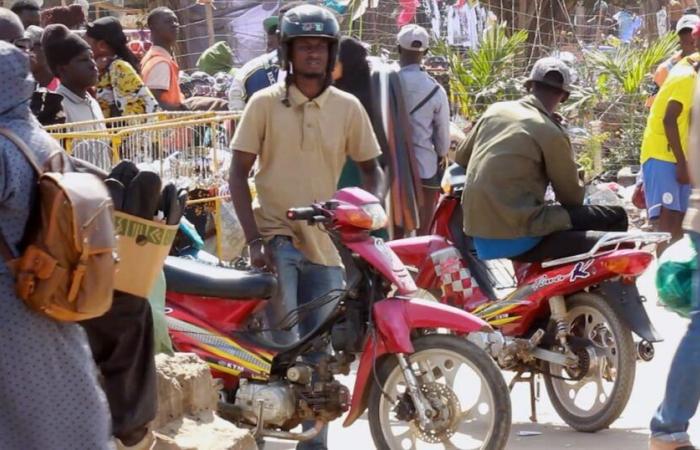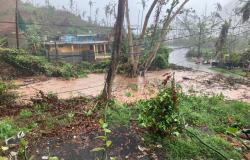Fast, flexible, available at any time even in difficult-to-access areas, affordable motorcycle taxis have established themselves as the most popular means of transport for Dakar residents. But the proliferation of two-wheelers has pushed the Ministry of Infrastructure and Land and Air Transport to bring order by imposing a number plate for each machine, made compulsory from March 13.
For Souleymane Diallo, motorcycle taxi driver, the three-month deadline granted for registration is “reasonable“. However, he denounces a procedure that is unsuitable and above all inaccessible for many. “The costs related to the registration and compliance of our motorcycles are out of reach for us, small workers. We do not have the means to cover all these expenses“, he declares. You may not know it, but registration of the vehicles in question is free.
So how do we get by when we are part of the 34.4% of young Senegalese who are unemployed? Like many others, Souleymane exercises this profession for lack of anything better and struggles, he says, to generate sufficient income. In Senegal, youth unemployment is the target area par excellence for the new authorities. In the second quarter of 2024, young people who are neither in education, nor in employment, nor in training represented 30.7% of the population aged 15 to 24.
Read also: Senegal: the government requires the registration of two-wheelers no later than March 13
In addition, professionals in the sector complain about the centralization of registration services in the city of Dakar alone. What his colleague Alioune Seck did not fail to strongly criticize, “why centralize such an essential service in a single city? We should have several branches in the departments to facilitate the procedure,” says Alioune Seck.
According to them, this centralization creates endless queues and costly trips for drivers coming from the suburbs or regions.
In addition to the challenges linked to regulations, drivers denounce the police harassment that they say they endure on a daily basis. Souleymane Keita, also a motorcycle taxi driver, describes an untenable situation. “The police stop us on every street corner, demand money and, if we refuse to pay, we are taken directly to the police station.»
Read also: Niger: papers that cost more than a motorcycle “it doesn’t hold water”
These practices, combined with administrative requirements, plunge drivers into even greater precariousness. Behind these demands lies a worrying social reality.
In Dakar, motorcycle taxis represent a work opportunity for thousands of young people looking for work. Faced with unemployment, many turn to this profession to provide for their families.
According to the National Road Safety Agency, every year, dozens of motorcycle drivers are victims of or cause traffic accidents. Very few are covered by insurance.
Par Moustapha Cissé (Dakar, correspondence)
01/09/2025 at 11:45 a.m.






